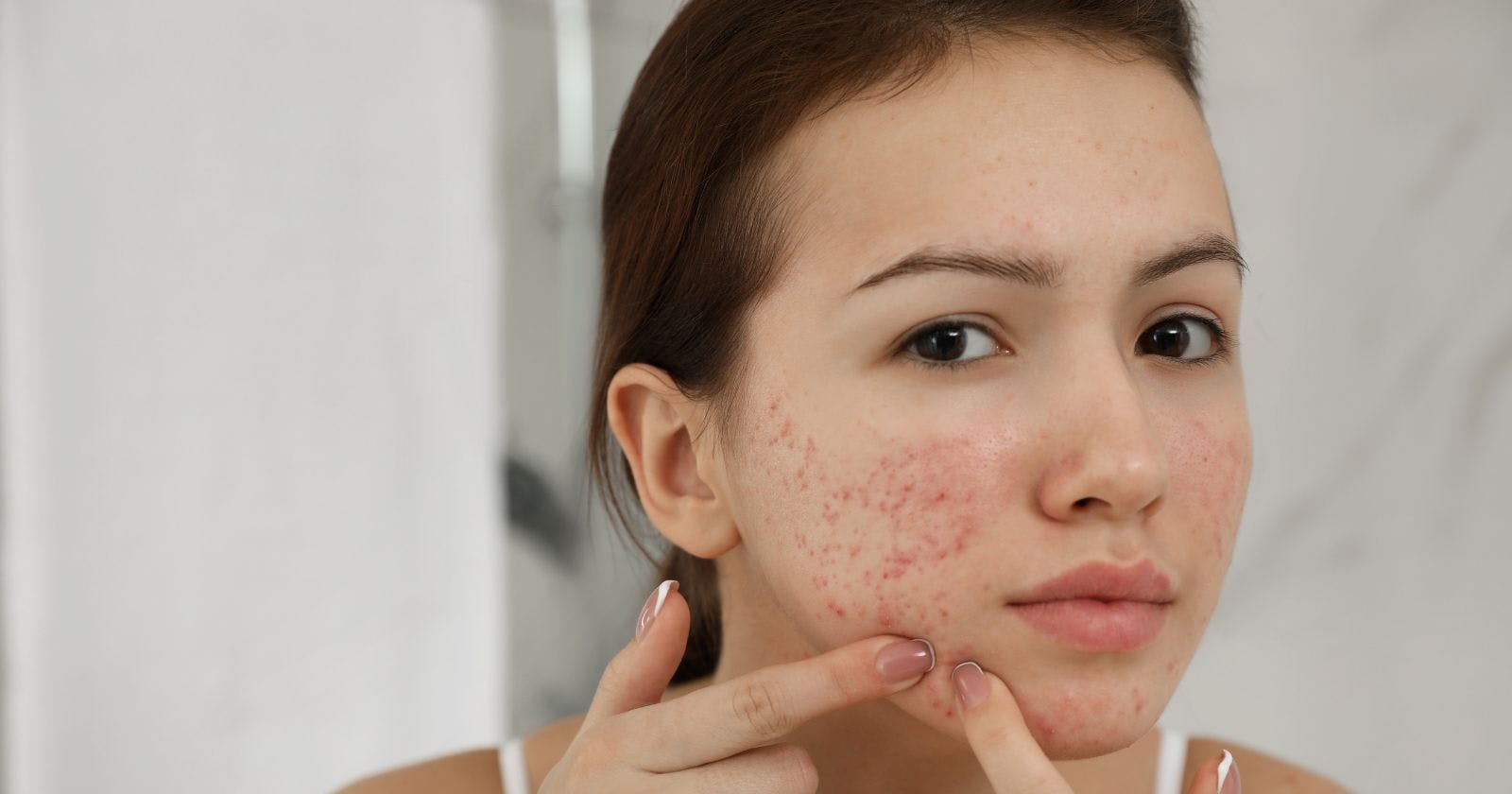People often confuse pimples and acne. The difference between acne and pimples is very simple; acne is a condition where pimples are of its symptoms. Acne is a type of skin condition that affects hair follicles and oil glands. It appears when the hair follicles become clogged with oil and dead skin cells. Under the skin, the pores are connected to the glands that make sebum (oil). The pores and glands are connected with a canal called a follicle that as thin hair grows out of the skin surface. When the dead cells and sebum clump, they plug into the follicle which causes red pimples.
What causes acne?
Acne majorly occurs due to four reasons:
Excess sebum (oil) production
Bacteria
Hair follicles clogged by dead skin and oil
Inflammation
People mostly get acne on the face, forehead, upper back, chest, and shoulder. This occurs because these areas of the body have the most sebaceous glands. The hair follicles are connected to these oil glands. When the follicle way bulges, the whitehead accepts, or sometimes the plug may be open and the surface gets darker causing a blackhead. People think the black thing is the blackhead is dirt, but it is a pore with bacteria and oil that tends to brown when exposed to the air.
Factors that can trigger acne
Hormonal changes: Androgens are a hormone that increases in girls and boys during puberty. Due to this the sebaceous glands enlarge and start producing more sebum. These hormonal changes can occur during midlife mainly in women and can lead to acne breakouts.
Diet: Many studies show that consuming certain food items like carbohydrate-rich food (bread, chips, etc) can worsen acne.
Stress: Stress doesn’t cause acne issues. But if you are already facing acne issues then your stress can worsen the condition.
Certain medications: Drugs containing corticosteroids, and testosterone, can cause acne.
Risk factors for acne
Age: You can get acne issues at any age but this condition mainly appears in teenagers during hormonal changes.
Family history: Acne condition can be genetic. If any or both parents have acne conditions then the kid may face the same skin problem.
Hormonal changes: Changes in hormonal levels during puberty or pregnancy can cause acne.
Oily substances: You can develop acne when the skin comes in contact with oil substances like lotions or creams.
Pressure on the skin: Sometimes, acne appears due to items like phones, helmets, tight collars, backpacks, mufflers, etc.
Symptoms of acne
The symptoms of acne depend on its type
Blackhead: Clogged pores on skin’s surface. These are open acne
Whitehead: Clogged pores, under the skin. These are closed acne
Pustules: These papules with pus on top
Papules: These are small, tender red bumps
Nodules: These are large acne. Nodules are painful lumps deep under the skin's surface
Cysts: Cysts can be very painful. These are pus-filled lumps under the skin's surface
Best acne treatments
Medication
Your dermatologist may suggest topical retinoids for acne like adapalene. Sometimes, OTC medications with active ingredients like benzoyl peroxide, and salicylic acid can help treat acne.
Homeopathy
If you are facing acne then look for a homeopathic specialist near me. Homeopathy can be very helpful in treating acne. Your homeopath will ask about possible causes, your diet, work, stress, living environment, etc. He will provide a tailored prescription for your condition. These medicines will not only treat the acne condition but also prevent a recurrence. You can use homeopathy medicine for a long time without having any harmful side effects.
Salicylic acid
Salicylic acid is good for treating acne. From your spot treatments to face cleaners, now salicylic acid is available in everything. This acid clears your pores and reduces symptoms like redness and swelling. If you have acne then add products that contain salicylic acid.
Dermabrasion
Dermabrasion is a very effective treatment for facial scars. Some dermabrasion kits are also available at home. But you should go to a specialist for dermabrasion to get the best results. The professional uses tools for deeper exfoliation of the top layer of your skin.
Chemical peel
A chemical peel is a strong acid that removes the top skin layer to reduce deeper scars. Certain chemical peels with mild acid are available for the home. But you should get a chemical peel from a healthcare professional to get a stronger solution with better results.
Laser resurfacing
This treatment is similar to dermabrasion and chemical peel where the layer is used to remove the top layer of the skin. Laser resurfacing has a faster healing time. But you need to cover it with a bandage until it heals completely.
Microneedling
It is a new treatment where the dermatologist uses a small handled needle-studded roller on the surface of the scars. These needles puncture the numbed skin and the skin starts healing and making collagen.
Some other options to manage acne are fillers, injections, etc. Meanwhile, before taking any treatment, you should talk to a specialist and get the best treatment for your condition.
